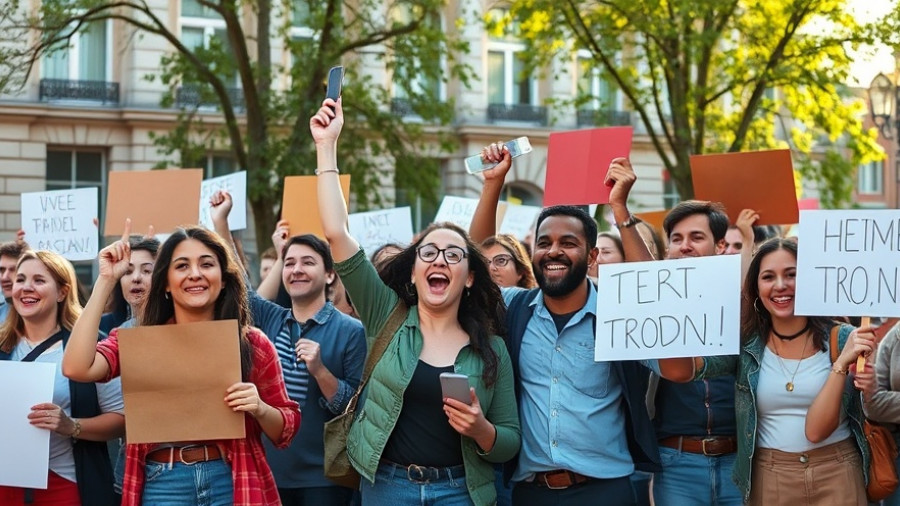
The Surging Stakes of AI Misuse in Legal Proceedings
The recent case involving a federal judge in Santa Ana considering sanctions for an attorney's misuse of artificial intelligence (AI) highlights a growing concern within the legal community. During a hearing on October 23, U.S. District Judge Fred Slaughter emphasized the unacceptable nature of submitting court briefs that included fabricated legal cases. This case revolves around attorney William J. Becker Jr., who defended writer Chris Epting in a defamation lawsuit filed by former NFL player Chris Kluwe.
AI in the legal field, while beneficial, presents risks that have begun to draw serious scrutiny from the judiciary. Judge Slaughter’s harsh stance—that using fictitious citations undermines the integrity of the court—reflects how courts across California are tightening regulations around AI. Becker's citation of three nonexistent legal cases and numerous erroneous references brought to light the critical need for attorneys to exercise due diligence in their submissions.
Legal Expectations: Accountability for AI Misuse
As AI tools become increasingly prominent in law practices, judges are taking a firmer stance against the unverified reliance on AI outputs. This case isn't happening in isolation; it follows California's first published opinion on AI misuse by the California Court of Appeal, which imposed a $10,000 sanction in a similar context. Attorneys are now facing both monetary penalties and potential reputational damage for submitting briefs that are not adequately researched.
Becker’s argument against monetary sanctions—citing the “humiliation” associated with being admonished—points to the evolving landscape where peer acknowledgment of wrongdoing may carry as much weight as financial penalties. Notably, Judge Slaughter also candidly stated, “I rely on me,” signaling a shift back to attorney accountability.
AI’s Dual Role: Friend and Foe
The explosion of AI capabilities in recent years presents both opportunities for efficiency in legal work and significant challenges regarding accuracy and responsibility. As highlighted in recent reports, including one from McDonald Carano, attorneys must adapt to the nuances of AI tools while maintaining rigorous standards of accuracy and reliability. The ABA’s guidance released in July 2024 further calls upon legal professionals to verify all AI-generated content before submission.
This duality of AI presents anxiety-inducing dilemmas for practitioners, as seen in Becker's case. It raises the question: How can legal professionals strike a balance between urgency and accuracy in an increasingly fast-paced legal environment?
Implications for Future Legal Practice
The implications of this AI misuse encompass more than sanctions—they signal a necessary recalibration of how attorneys approach legal technology. The landscape is shifting, as courts nationwide emphasize transparency and accountability in AI use. Attorneys are encouraged not only to review but also to authenticate any AI-generated information, a shift that could transform current practices. Judges are conveying a clear message: diligence in legal correspondence is non-negotiable.
Ongoing discussions around the risks associated with AI in law—such as the risk of relying on AI-generated citations that may not exist—continue to underline the importance of ethical practices in legal procedures. Becker’s situation serves as a cautionary tale for attorneys who may overlook the fundamental responsibilities of their profession when leveraging advanced technologies.
Your Role and Responsibility
As this drama unfolds in the courts, it serves as a call to action for local legal professionals and law students in Huntington Beach. Ensuring accurate legal documentation should be at the forefront of their practice, establishing a precedent for integrity even amidst technological advancements. This situation compels all attorneys to be aware of their ethical duties concerning AI’s capabilities.
Whether you’re a seasoned attorney or budding legal talent, integrating best practices into your work not only protects you from potential sanctions but also upholds the very foundation of justice. As the landscape continues to evolve, remember: AI should be used as a tool for support—not a shortcut to compromise.
 Add Row
Add Row  Add
Add 




Write A Comment